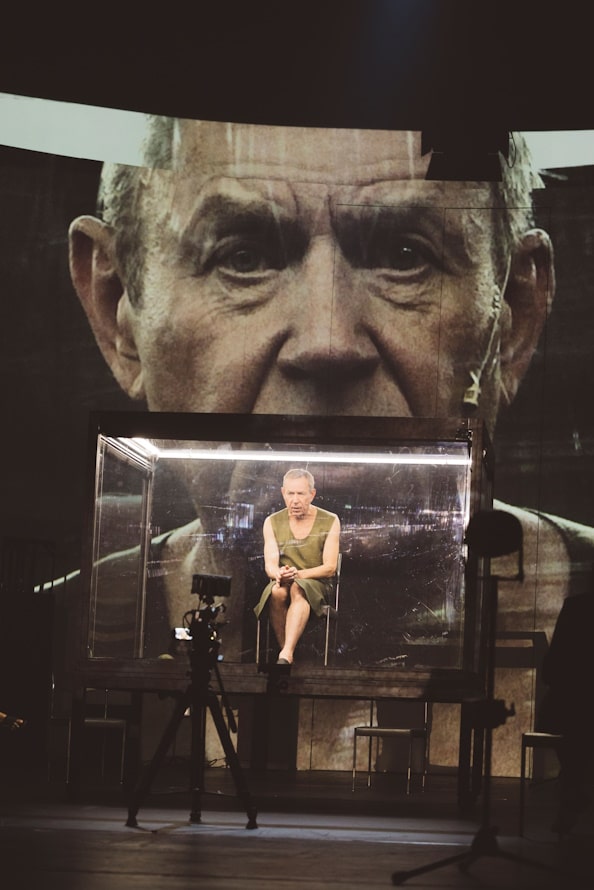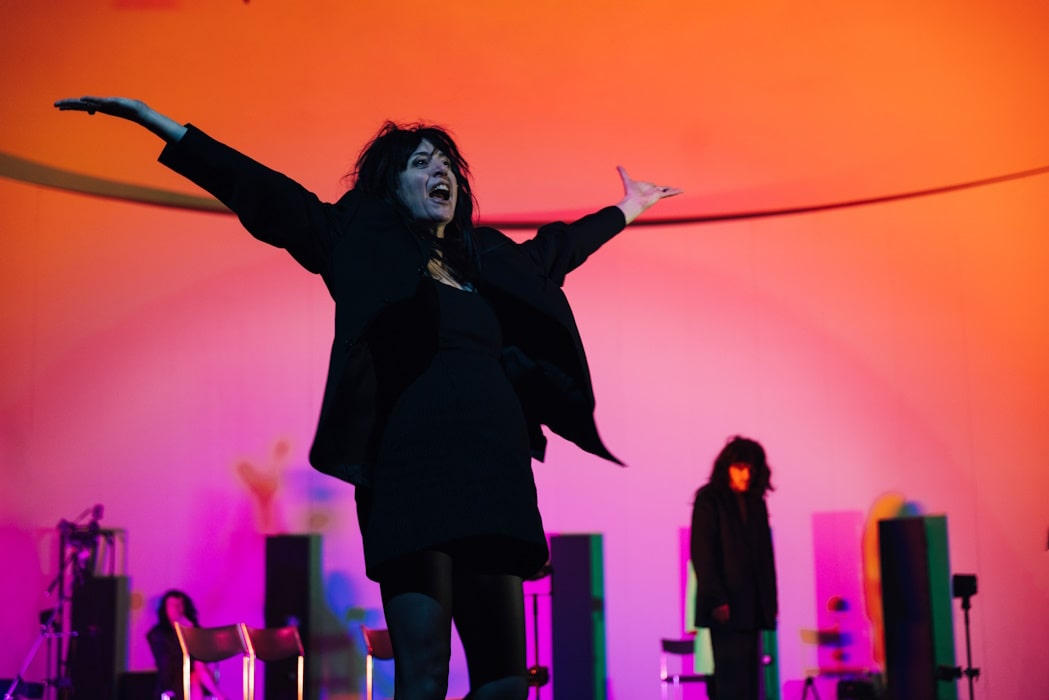On 24 October 2025, the play Die Marquise von O und – (The Marquise of O and -), directed by Ildikó Gáspár, premiered at the Deutsches Theater Berlin. The Hungarian director combines Heinrich von Kleist’s novella from 1808 with three other true cases of sexual violence from different centuries. The production can be seen again in October and November 2025 and on 1 January 2026. On three evenings, the play will be accompanied by the event ‘Die Scham muss die Seite wechseln’ (Gisèle Pelicot) on society’s handling of sexualised violence, with lawyer and author Christina Clemm. This will take place in the Rangfoyer about an hour before the play begins.
Fi. above: DIE MARQUISE VON O. UND – after a novella by Heinrich von Kleist, Deutsches Theater, Photo: © Walkenhorst
In a northern Italian fortress, the unthinkable happens: as Russian troops storm the city, the widowed Marquise von O. almost falls victim to an assault – until a Russian officer, Count F., seemingly heroically rescues her. He disappears without a word after the attack, and everything seems to be over. A few weeks later, however, she is horrified to discover that she is pregnant. Without memory. Without consent. And without anyone who believes her claims of innocence. Rejected by her family, she places a newspaper advertisement seeking the man who raped and impregnated her.
Heinrich von Kleist published his novella in 1808 with the note ‘Based on a true story’ and recounts the story of the Marquise in a factual, sober and detailed manner. Only for the moment of the act itself does he insert what is perhaps the most famous dash in world literature: language fails, and there is an abrupt break where the decisive moment should actually be.

In her first work at the Deutsches Theater, Hungarian director Ildikó Gáspár interweaves three other cases ‘based on true events’ with that of the Marquise. Franca Viola was kidnapped and raped by her criminal ex-fiancé in Italy in 1966 in order to force her to marry him through the legal means of a ‘restorative marriage’. Erika Renner was attacked by her ex-boyfriend in her own flat in 2013, drugged and then mutilated with lye. And finally, Gisèle Pelicot, the woman who, after 50 years of marriage, learns from investigators that her husband had regularly drugged and raped her for almost ten years and offered her to dozens of other men on the internet to rape her in this state.
Four women. Three centuries. And yet the same patterns: violence. Silence. Reversal of guilt. But also: resistance. Voice. Change. Whether fictional like the Marquise, historical like Viola, or contemporary like Pelicot and Renner – they all tell us what happens when women no longer remain silent, when they leave the space of shame and force the perpetrators into it.

DT Kontext accompanies this production with the event „Die Scham muss die Seite wechseln” (Gisèle Pelicot) on society’s handling of sexualised violence, with Christina Clemm (lawyer, author) on 25 October, 8 November and 25 November 2025. Christina Clemm draws on her nearly 30 years of experience as a solicitor representing victims of gender-based violence to discuss how victims are treated in our society, how press coverage can help but also harm, how the justice system handles cases, and what needs to change.
Director: Ildikó Gáspár
Stage and costume design: Lili Izsák
Music: Flóra Lili Matisz
Video: András Juhász
Lighting: Cornelia Gloth
Choreography: Barnabás Horkay
Dramaturgy: Jasmin Maghames
The Deutsches Theater would like to point out that this play deals with sexual violence, rape and trauma recovery.
Strobe effects are used in this play.
WHEN?
Première: Friday, 24. October 2025
Further performances:
Saturday, 25 October 2025, 7:30 p.m.
Sunday, 2 November 2025, 7 p.m.
Saturday, 8 November 2025, 7:30 p.m.
Saturday, 22 November 2025, 8 p.m.
Tuesday, 25 November 2025, 8 p.m.
Thursday, 1 January 2026, 7 p.m.
Accompanying events in the stalls foyer: „Die Scham muss die Seite wechseln” (Gisèle Pelicot) with Christina Clemm (lawyer, author) on 25 October, 8 November and 25 November 2025 (approx. 1 hour before the start of the play, admission to the accompanying event is free)
WHERE?
Deutsches Theater
Schumannstraße 13A
10117 Berlin-Mitte






